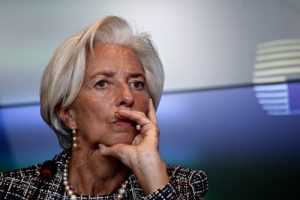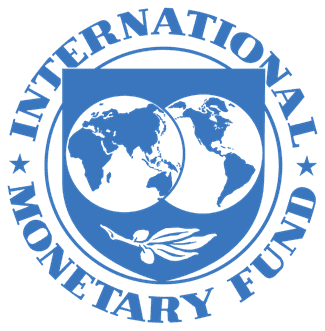
IMF Chief Envisages Large-Scale Shift Towards Cryptocurrencies
News - April 30, 2018IMF chief Christine Lagarde has dedicated her latest two blog posts on the official IMF website to cryptocurrencies. In her latest post, she outlines multiple benefits of crypto and envisages a large-scale shift away from government-issued currencies towards cryptocurrencies.
The managing director of the International Monetary Fund (IMF), Christine Lagarde, dedicated a blog post on the IMF website to the benefits of cryptocurrencies on Tuesday. This positive post follows her other post last month which she outlined the drawbacks from her viewpoint. Citing that she previously “looked at the dark side of crypto-assets, including their potential use for money laundering and the financing of terrorism,” Lagarde proceeded to say:
Here, I want to examine the promise they [cryptocurrencies] offer. A judicious look at crypto-assets should lead us to neither crypto-condemnation nor crypto-euphoria.
She acknowledged the many cryptocurrencies in circulation and said, it seems inevitable that many will not survive the process of creative destruction. According to Coinmarketcap, there are currently 1,568 cryptocurrencies.
The crypto-assets that survive could have a significant impact on how we save, invest and pay our bills,” the IMF chief believes. “That is why policymakers should keep an open mind and work toward an even-handed regulatory framework that minimizes risks while allowing the creative process to bear fruit.
Lagarde Explores Benefits of Crypto
The first benefit Lagarde pointed out was: Crypto-assets enable fast and inexpensive financial transactions, while offering some of the convenience of cash.
She emphasized that “Some payment services now make overseas transfers in a matter of hours, not days,” adding that “If privately issued crypto-assets remain risky and unstable, there may be demand for central banks to provide digital forms of money.”
The next point Lagarde discussed was a potential balance in the financial landscape brought about by cryptocurrencies. While emphasizing her belief that “the fintech revolution will not eliminate the need for trusted intermediaries, such as brokers and bankers,” she detailed:
There is hope, however, that decentralized applications spurred by crypto-assets will lead to a diversification of the financial landscape, a better balance between centralized and decentralized service providers, and a financial ecosystem that is more efficient and potentially more robust in resisting threats.
No Immediate Danger
Regarding financial stability, Lagarde revealed, “Our preliminary assessment is that, given their still-small footprint and limited links to the rest of the financial system, crypto-assets do not pose an immediate danger.” Nonetheless, the IMF chief calls for regulators to remain vigilant of the potential of cryptocurrencies “to magnify the risks of highly leveraged trading, and to increase the transmission of economic shocks should they become more integrated into mainstream financial products.” She further described:
Moreover, banks and other financial institutions will face challenges to their business models, should there be a large-scale shift away from government-issued currencies toward crypto-assets. Regulators might find it harder to ensure the stability of a more diffuse and decentralized financial system. Central banks might have more trouble acting as the lender of last resort in case of a crisis.
Follow
Recent Posts
- IMF Chief Envisages Large-Scale Shift Towards Cryptocurrencies
- SWIFT’s Blockchain Pilot For Bank-To-Bank Transfers Went ‘Extremely Well’
- What about an ICO?
- Developer Showcase Series: George Theofilis, Synaphea
- Viva Nest Finals - Commendation to Synaphea team
- Let’s talk about Blockchain
- Meet us at GSMA Mobile World Congress
- KCN: Blockchain project Synaphea
- Blockchain project ‘Synaphea’ for Insurance Group Companies
- «Building» the first greek blockchain application



